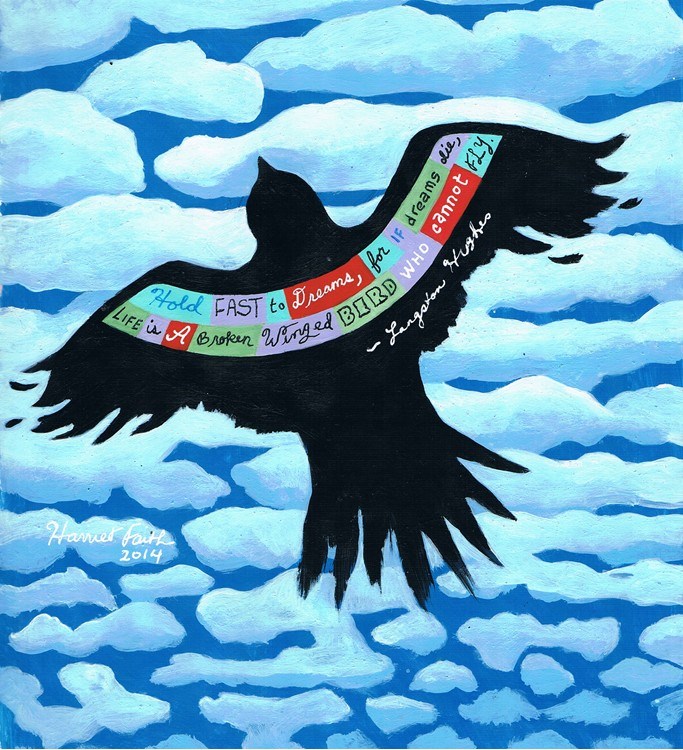
At the beginning of 2014, I started a weekly, year-long hand-lettering project. The name of the project is "Pay Attention To Your Dreams," and that was also the name of the first piece I illustrated. Each week, I have painted a different quote or phrase and posted it on my blog. Last week, I starting posting this series here, on rattnercopy.wpengine.com. If you would like to see previous pieces, please visit my blog or my Pinterest board.
This quote by Langston Hughes, like so much of his writing, has the deep and sad timbre of his subject; the experience of racism in his life and in our culture. How sad to think of not holding to our dreams, which is something we may be tempted into, particularly in the face of what may seem like insurmountable odds, or forces that are so large we cannot imagine being strong enough to take them on. If we give up on our dreams, they become a life lost, like an injured bird, without hope of ever getting off the ground again. And yet, inside of this sad aspect, is the idea of staying true to ourselves and the importance of our lives through our ability to dream and the power of our imaginations. While some dreams may fall to the ground, much like an injured bird, there is always another dream that each one of us may take in and nurture - for ourselves, our loved ones, groups we care deeply about or for critical social causes. There are new dreams. There are new incarnations of lost dreams. The important thing is to keep dreaming. Keep dreaming and let your dreams soar.
Langston Hughes was an American poet, social activist, novelist, playwright, and columnist. He was one of the earliest innovators of the then-new literary art form "jazz poetry." Hughes is best known for his work during the Harlem Renaissance. He was born on February 1, 1902, which was interesting to me because February 1 is my birthday too.
He was the voice for his race during his life and was, in his later years, deemed the "Poet Laureate of the Negro Race," a title he encouraged. Hughes meant to represent the race in his writing and he was, perhaps, the most original of all African American poets. He died on May 22, 1967, after complications from surgery. At his funeral, very little was said by way of eulogy, but the jazz and the blues musicians who played for him, created a very fitting final tribute to this writer who had been a creative maverick, for his race and for his generation.



